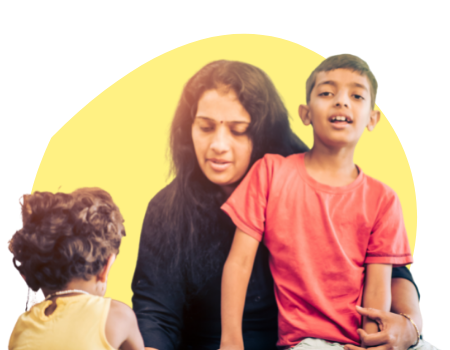
Relationship Thought Prompt #03
Relational journey
Parental relationship impact mapping
Relationships can shift and evolve over time. It is important to understand when relationships move from healthy to unhealthy or even abusive. This guide will help you understand where your relationship is at the moment.
The relationship scale
A healthy and respectful relationship
An unhealthy relationship of conflict and distress
An abusive relationship of fear and risk
Start here…
Scale point 1.
A healthy and respectful relationship
What behaviours you have
Respect. Equality. Honesty. Co-operation. Trust.
What it looks like
Open communication. Tricky moments are resolved constructively.
What your child experiences
Constructive resolution skills. Emotional control. Respect and equality.
What help and support is available
Self help. Children and family centres. Community services.
Scale point 2.
A healthy and respectful relationship
What behaviours you have
Inconsistent respect and co-operation.
What it looks like
Reduced communication. Difficulties ignored. Arguing and unhappiness.
What your child experiences
Reduced emotional wellbeing. Distress and concerns.
What help and support is available
Children and family centres. Bromley Children Project. Community services.
Scale point 3.
What behaviours you have
Arguing. Inconsistency. Isolation.
What it looks like
Frequent conflict and arguments. Parents
emotionally unavailable.
What your child experiences
Toxic environment. Reduced connections. Feeling isolated and alone.
What help and support is available
Family assessment from Bromley Children Project. Relationship support.
Scale point 4.
An unhealthy relationship of conflict and distress
What behaviours you have
Shouting. Screaming. Violence. Conflict.
What it looks like
Conflict and abuse. Unresolved conflict. Inconsistent pattern.
What your child experiences
Emotional health worries. Concern and worry. Uncertainty in situations.
What help and support is available
Family assessment from Bromley Children Project. Domestic abuse advice.
Scale point 5.
An abusive relationship of fear and risk
What behaviours you have
Violence. Conflict. Stress. Worry.
What it looks like
Controlling and abusive interactions. Arguments and stress.
What your child experiences
Fear and stress. Negative emotional health.
What help and support is available
Scale point 6.
An abusive relationship of fear and risk
What behaviours you have
Control. Abuse. Fear.
What it looks like
Coercive control. Physical harm. Fear of violence or death.
What your child experiences
Risk of significant harm. Trauma and fear. Belief that abuse is normal.
What help and support is available
Domestic abuse services. Children’s social care. Police and emergency care.
Download the guide
[PDF, 2 pages]
